Most Americans say they now believe in climate change, but the looming threat remains a low priority in their lives.
So we decided to talk to Chicago families about climate change. The goal was to understand why this is an issue so many people know is important but is still so easy to ignore?
We found 13 families from all over Chicago and convinced them to let us into their homes. Before we arrived, the only thing we told them is we wanted to talk about the future. Every family was engaged -- and they were very generous to let us waltz into their living rooms with our microphones and intrude on their weekends.
We talk to scientists a lot on the Nerdette podcast, but we’re definitely not experts. So we asked Heidi Cullen to ride shotgun.
Cullen is a climate scientist who runs the Climate Central website. She has a particular mission: get people motivated to act on climate change.
Cullen says she often thinks of a quote by F. Sherwood Rowland, an atmospheric chemist who won a Nobel Prize in 1995. He said, “What’s the use of having developed a science well enough to make predictions if, in the end, all we’re willing to do is stand around and wait for them to come true?”
“I’m really worried that’s what we’re going to do with climate change,” Cullen said.
So in late August, Cullen flew out from New Jersey for a two-day road trip to meet the families.
We traveled all over the city, from the Far Northwest Side to the South Side. (And, yes, we get the irony of all this driving.) We visited condos, houses and apartments. We met new parents and toddlers, foster children and grandmothers, all willing to sit down at their kitchen tables to let us ask them about what the next generations could face.
Let’s start with Nissa Holtkamp. She lives in the North Side’s Bowmanville neighborhood with her son William, 8, and her daughter Rosalie, 6. The neighborhood was cleaning up from a block party the night before, and as we came in with our microphones and cables, two cats, Mis and Mittens, scattered.
William and Rosalie, though, were excited to see us, and curious about our gear.
We brought the children paper and crayons to draw a picture of the future while we talked to their mother.
And Cullen brought facts about climate change. With William coloring at the table and Rosalie in a room nearby, Cullen told Holtcamp if we do nothing to curb carbon emissions, heat-related deaths are predicted to quadruple in our lifetime. Food will get more expensive. People living near the coasts will need to flee rising sea levels.
“I think what we see is a future of more extreme heat, of more extreme rainfall events,” Cullen said. “The kind of thing we saw in Louisiana and West Virginia. Those kinds of really heavy rainfall events, we’re already seeing them happen more often.”
As Cullen described the problems climate change could cause by the time Holtkamp’s children were grown, we noticed William was scribbling dark circles next to us. When he was done, he nudged the paper to the center of the table.
It said: “Everyone disintegrated 200 years later.”
At the bottom were 10 black piles of ash with eyes peeking out.
We looked over at his mother.
“I guess I wasn’t prepared for that,” Holtkamp said. “Even though he’s not really talking about it too much, the first thing he decided to draw was everyone in ashes. So, obviously, he’s having a very visceral reaction to it.”
This wasn’t an easy moment for Holtkamp. We could see she was tearing up.
She told us it reminded her of another conversation with William that happened at the dinner table.
“We were sitting there as a family, and he just looked at me and said, ‘You know, one day I will die.’ And I was like, ‘Yeah, I know honey. I know.’ And he kind of looked at me and … You know, I think he was was coming to terms with that. And what it is to be mortal. And to have your children realize that, and watch them realize that, is tough.
“And I think I’m kind of having that same sort of situation here. You know?”
Holtkamp told us she was worried about how fear could make her son feel hopeless or apathetic.
“I don’t want to talk to them that much about it because I have so much personal anxiety about it,” she said. “I don’t want them to see that.”
And there’s social science that backs her up. Cullen calls it pre-traumatic stress disorder, and she said it’s a common reaction to information about climate change. People get so afraid of the future, they just shut down.
Takeaway No. 1: Climate change is scary, and we don’t like being scared
Getting up close and personal with climate change predictions can be really uncomfortable and difficult.
Because people are scared. And we tend to avoid the things we are afraid of. In addition to being scared, we also often feel sad.
One Loop resident admitted “climate change is important.” But when we asked if he’d think and talk about it more after having Cullen at his kitchen table, he replied, “Nope.”
If he did, he said, he’d just walk around depressed all the time.
It's a different way to deny the impact of climate change. It’s arguably a camp many people fall into: not disbelieving the science, just avoiding it. Either way, some are acting like it’s not there.
We met Constance Benson and her two grandsons, Josh, 14, and Kevin, 15, in the South Side’s Calumet Heights neighborhood. They had spent the morning at church, where Benson works and Josh plays the drums.
By the time we got to her house, it had turned into a sticky August afternoon, and the boys were waiting for us on the front steps. Kevin was about to start school the next day, so they were doing their best to relax for the last day of summer.
When we sat down at their kitchen table and started recording, we realized the fan on the floor near us was making a lot of noise into the microphones. So we asked Benson if we could turn it off during the interviews, apologizing for the claustrophobic heat. She said that would be fine -- the fan was running because their air conditioning had stopped working in the summer.
After Cullen described the future to Benson and her teenage grandsons, Benson told us she was in Chicago in 1995 when about 750 people died in a heat wave. Cullen told Benson by the end of the century, thanks to climate change, a heat wave of that temperature and duration could happen three times a year.
Benson listened to what we had to say, and she immediately told her grandsons it might be time to bring back an environmental program at their church that had petered out.
She also told us about a book she was reading, “Jesus and the Disinherited” by theologian Howard Thurman.
Benson said the book is about how difficult it can be to focus on the long game when you’re scrambling in the here and now.
The book is about how people who struggle with day to day needs -- like finding food and a place to stay -- have difficulty focusing on the long game, she said.
As a retiree on a fixed income, Benson said her long-term planning, like keeping her grandsons safe, has overtaken her short-term concerns.
“One day, we were at the church, and the kids were coming home from school along 72nd Street. Someone came along and fired a shot,” Benson said.
She said everyone in the street went running. Her grandson Kevin knew the boy who was shot in the leg.
Takeaway No. 2: Climate change is important, but it’s not urgent
Most families we talked to thought climate change is important. But we’re all leading busy, hectic lives. And day to day, we just don’t have the mental energy for it.
Violent streets. Paying bills. Getting through school. The election.
With so many other things vying for our attention, almost everyone we talked to said climate change just wasn’t a topic they could prioritize.
Social scientists say it’s like there’s a finite pool of worry, and we can only fit so much stuff into it. This all makes sense, but it also raises a tough question.
It’s like that quote Cullen mentioned from Rowland. People like Cullen have gotten good enough at science to figure out we’re wrecking the planet. But if they can’t get enough people to care, then what good does it do to know?
And that brings us to another couple of children we talked with: Alex and Alicia. They live in a condo along the river in Avondale on the Northwest Side.
Alex and Alicia are the children of Amy and Andy Zimmermann. They’re the sort of family with laminated world maps and posters behind their kitchen table. The whole main floor of the condo looked like an elementary school classroom, with charts and books and art supplies.
We sat down and set up our recording equipment. And right off the bat, before we even told the Zimmermanns we wanted to talk about climate change, Alex and Alicia brought it up.
“Well, I don't want the earth to go away,” Alicia said. “I've become... fond of it!”
It’s a nice place to live, we agreed.
“It's not like we have a lot of other options, is it?” we asked her.
“Yeah. Until the habitable zone moves to another planet, I'm staying here,” she said.
Amy Zimmermann said the first time she realized her children were thinking about climate change was when Alex was 4. He drew a machine he said could eat carbon dioxide out of the air to stop global warming.
As she told us the story, Alex hid under the table, suddenly shy.
“I’ll be down here if you need me,” he shouted.
Amy Zimmermann told us she thinks Alex has decided to be an inventor when he grows up precisely because of problems like climate change. Because he wants to try to fix them.
There are plenty of big questions about how to handle climate change. Things that seem too difficult. Too far away. Too late to fix. Too big for any one of us to take on.
So the Zimmermanns are still struggling with how to think about climate change solutions.
Cullen was curious to learn more about how the Zimmermanns were grappling with climate change, so she asked them: “Do you think we’re gonna fix it?”
Amy Zimmermann was adamant: “We have to!”
“I mean, you have to see that as a yes, you have to see that as -- by the skin of our teeth -- Voldemort can’t win!”
She laughed, but you could tell she was also terrified of imagining the alternative.
For anyone who’s not familiar with Voldemort, he’s the bad guy in the Harry Potter series.
When Amy Zimmermann said Voldemort can’t win, she was really saying we can’t let climate change destroy Earth. That can’t be how the story ends.
And Cullen is quick to agree. She thinks there’s also something we can do, right at our kitchen tables. Even if it’s complicated. Even if it’s kind of a bummer: We can keep talking.
And how does talking help? Well, remember the bad guy from Harry Potter? Most people called him “He Who Must Not Be Named.”
But there’s a power to calling the problem you need to conquer by its name. And that’s what Cullen was eager to tell the families.
“You know what? I think there's actually so much good stuff happening,” Cullen said. “There's so many people thinking about how to make the most efficient solar cell, and how to store energy that comes from the sun and the wind. So I think there's plenty of reasons to think that we could nip this in the bud. We just need everyone talking about it.”
In other words? Voldemort can’t win.
So let’s keep talking.
Tricia Bobeda and Greta Johnsen are the hosts of WBEZ’s Nerdette Podcast. You can follow them at @triciabobeda, @gretamjohnsen, and @NerdettePodcast.
Michelle Kondrich is an illustrator. Find more of her work here.


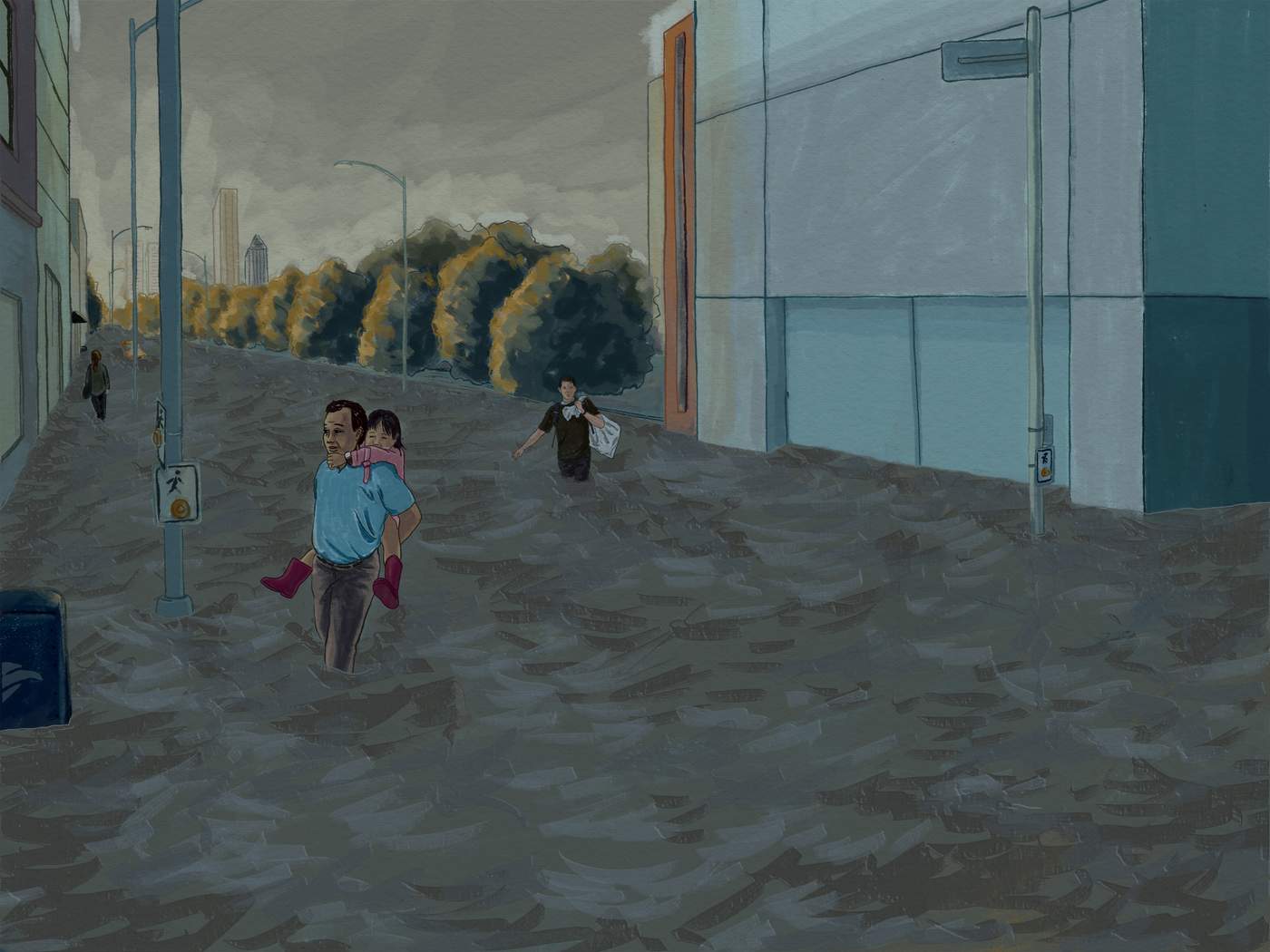
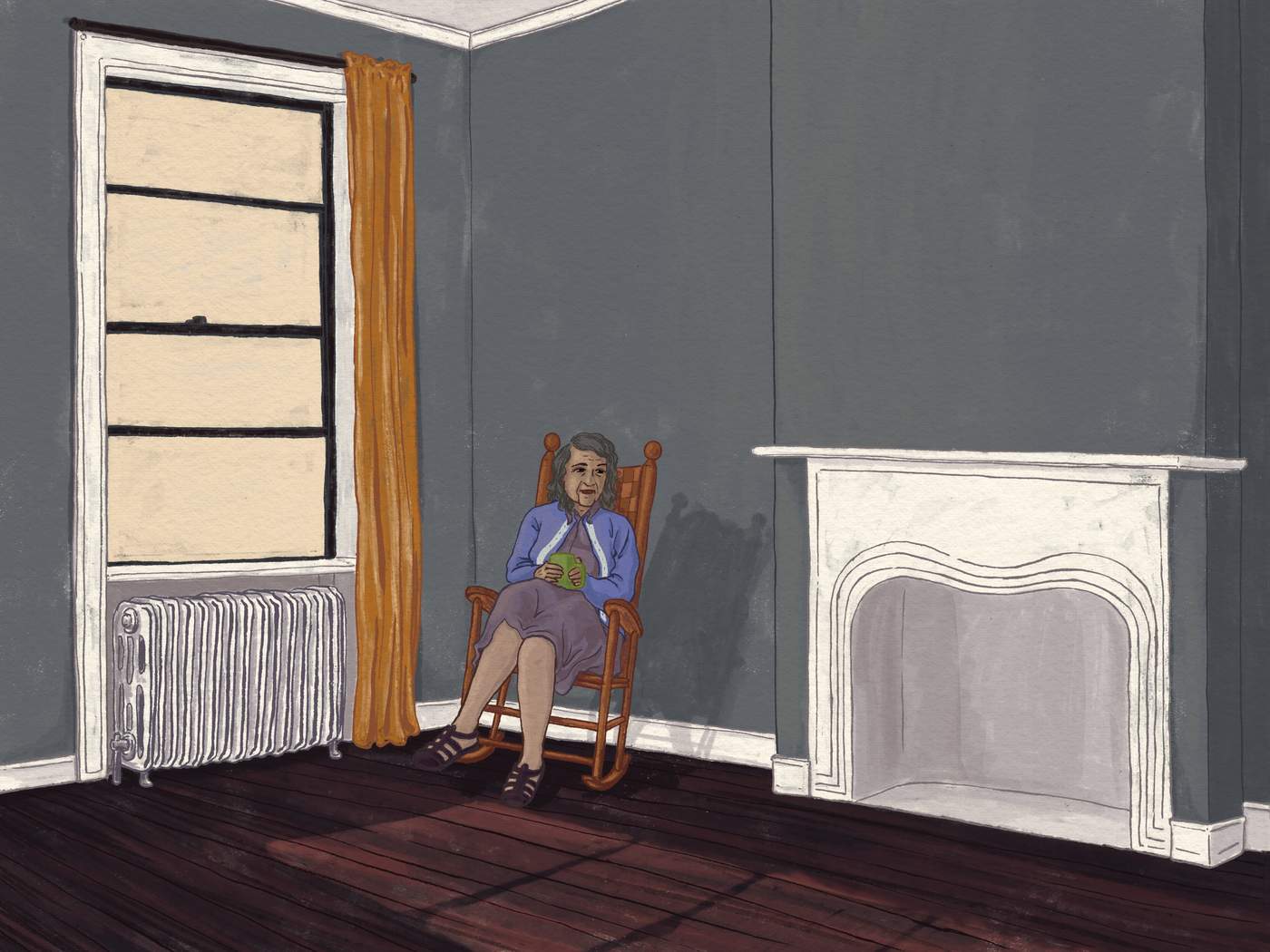
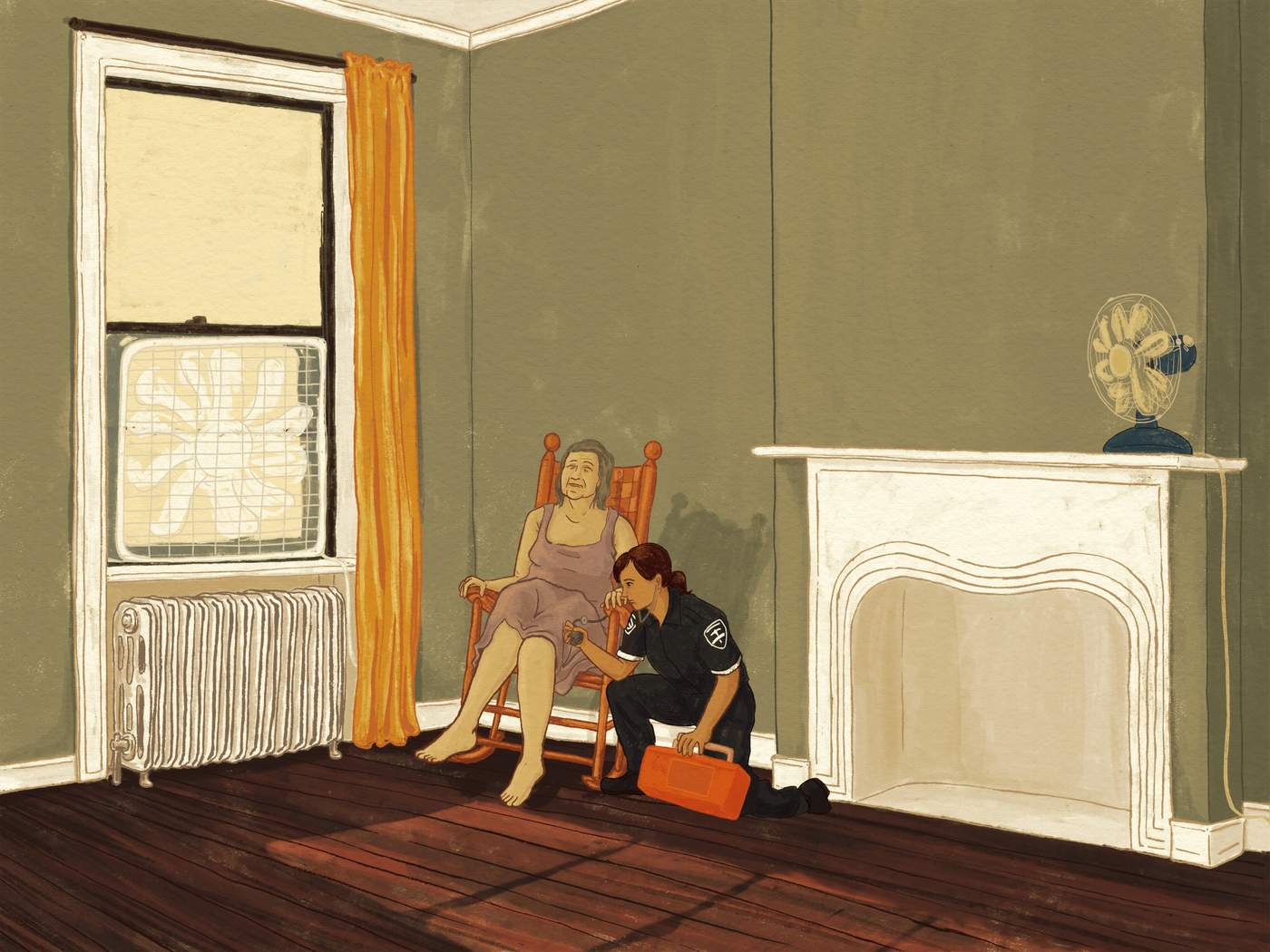
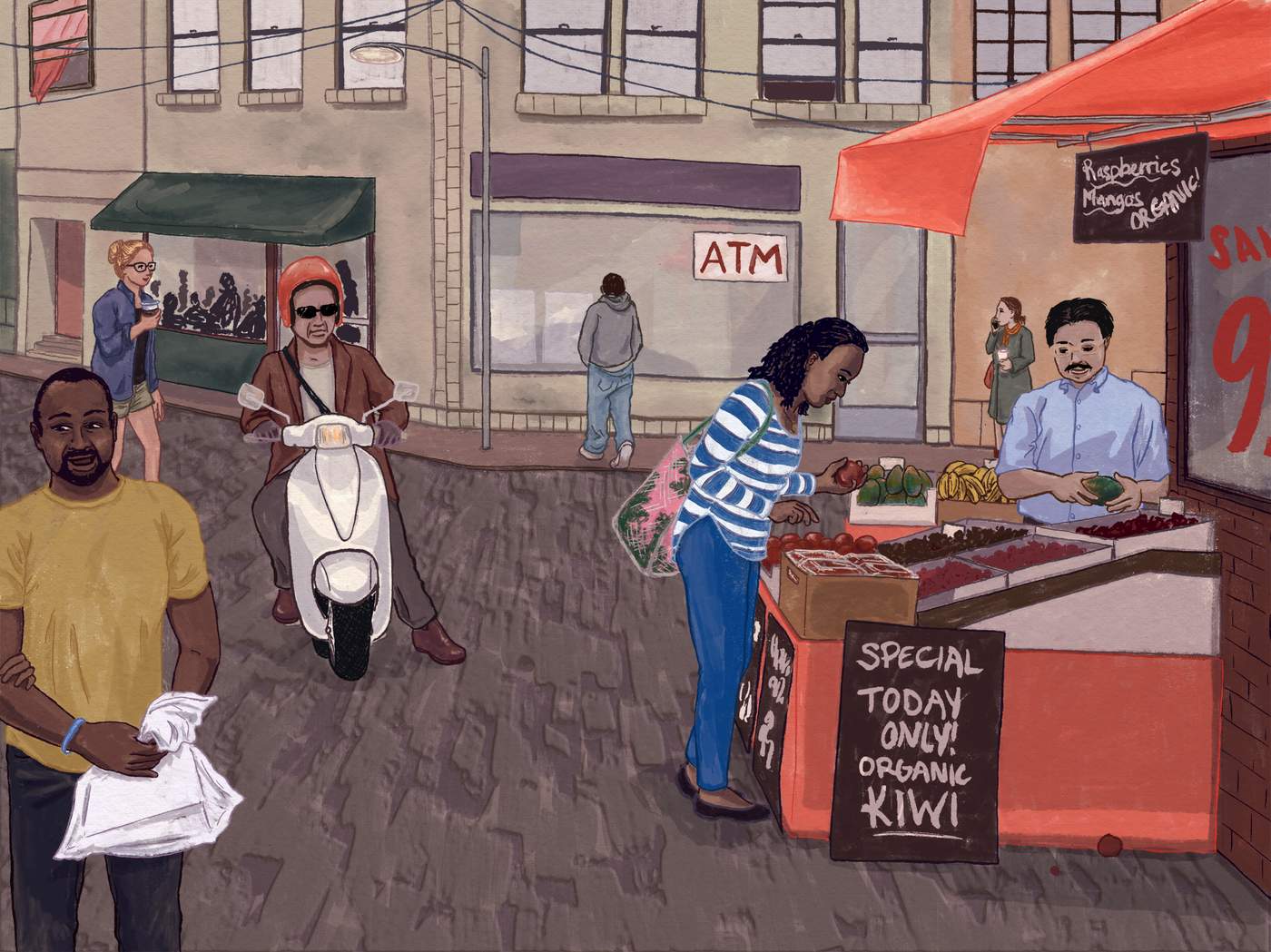
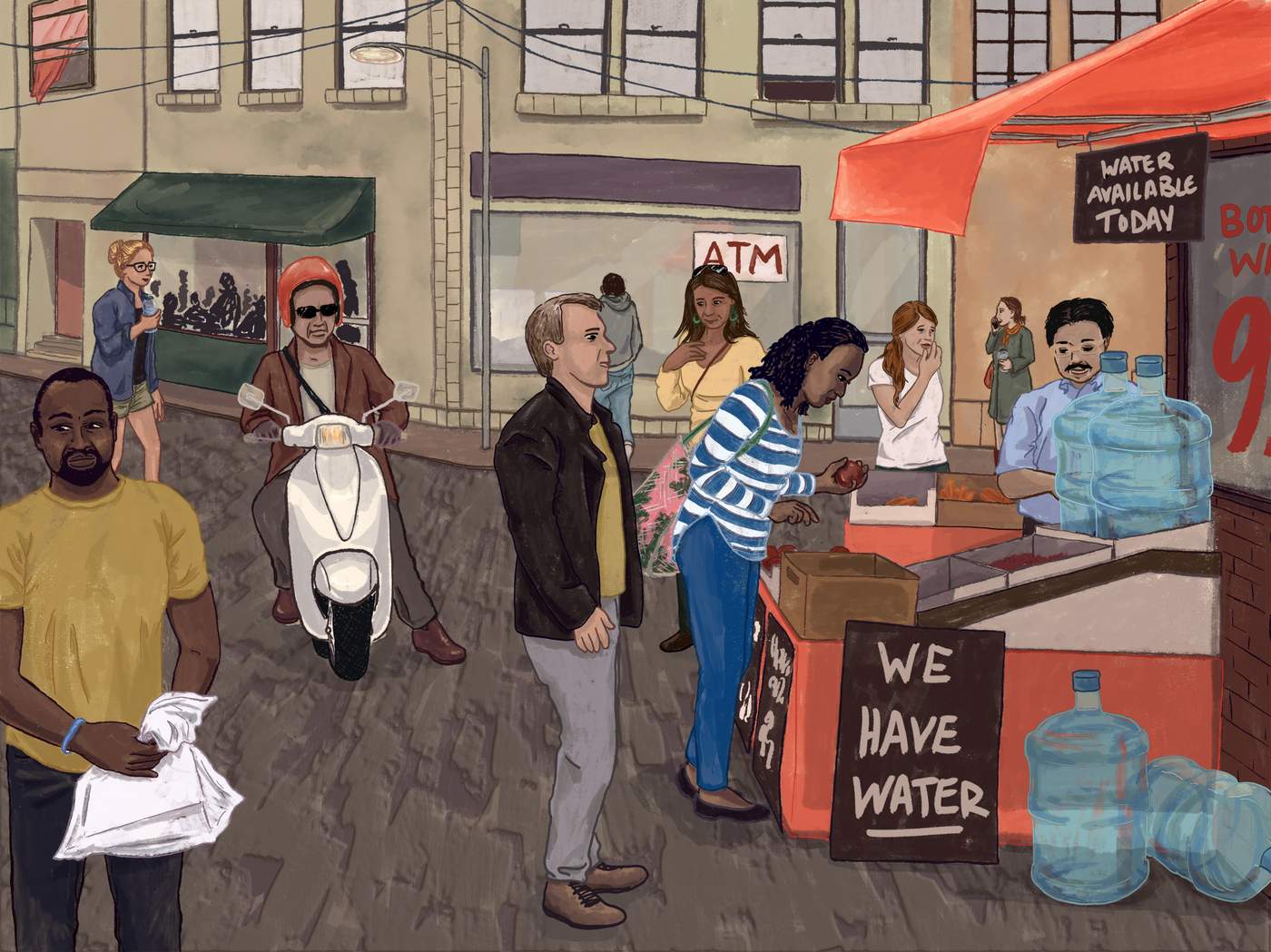
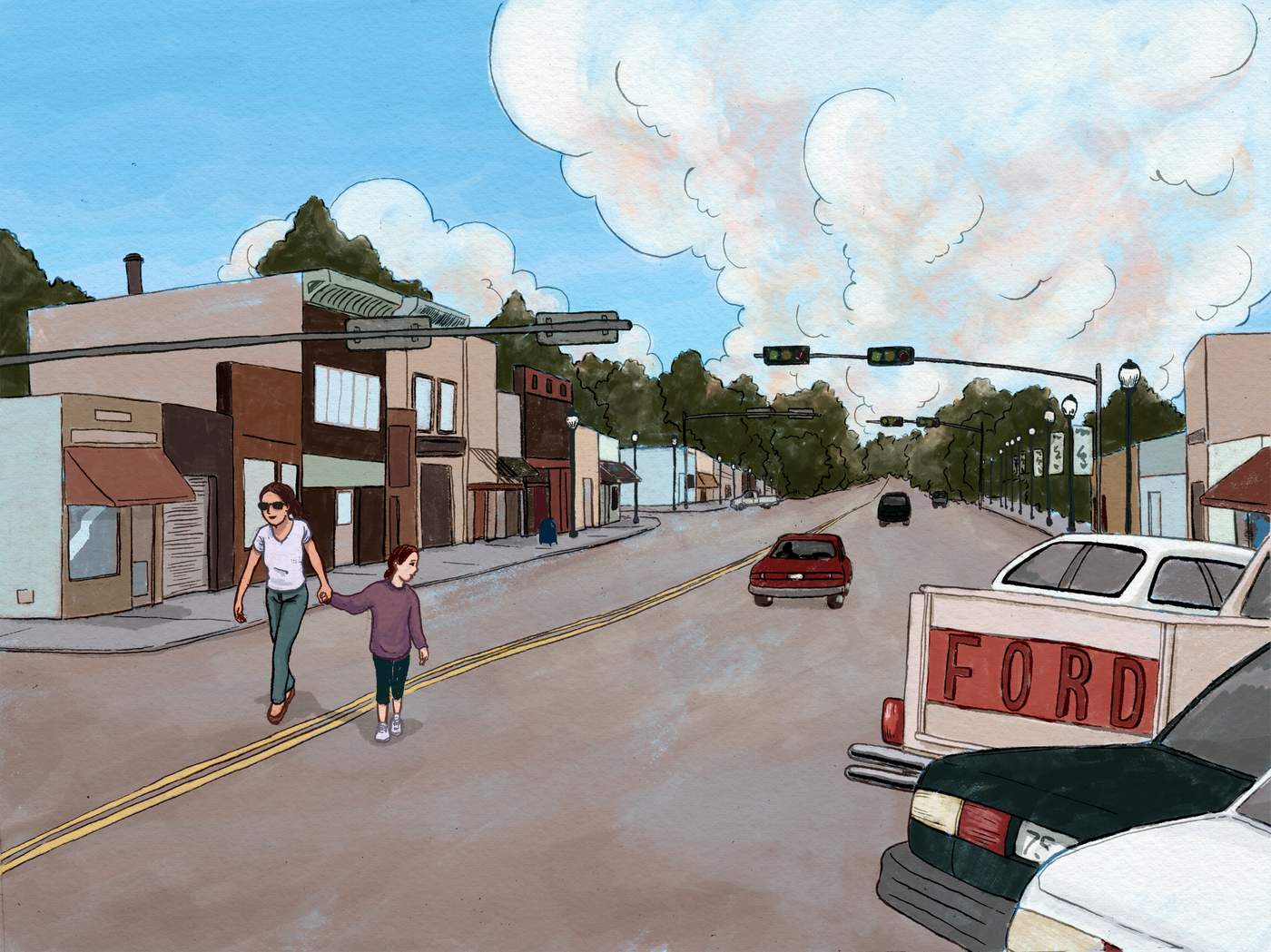
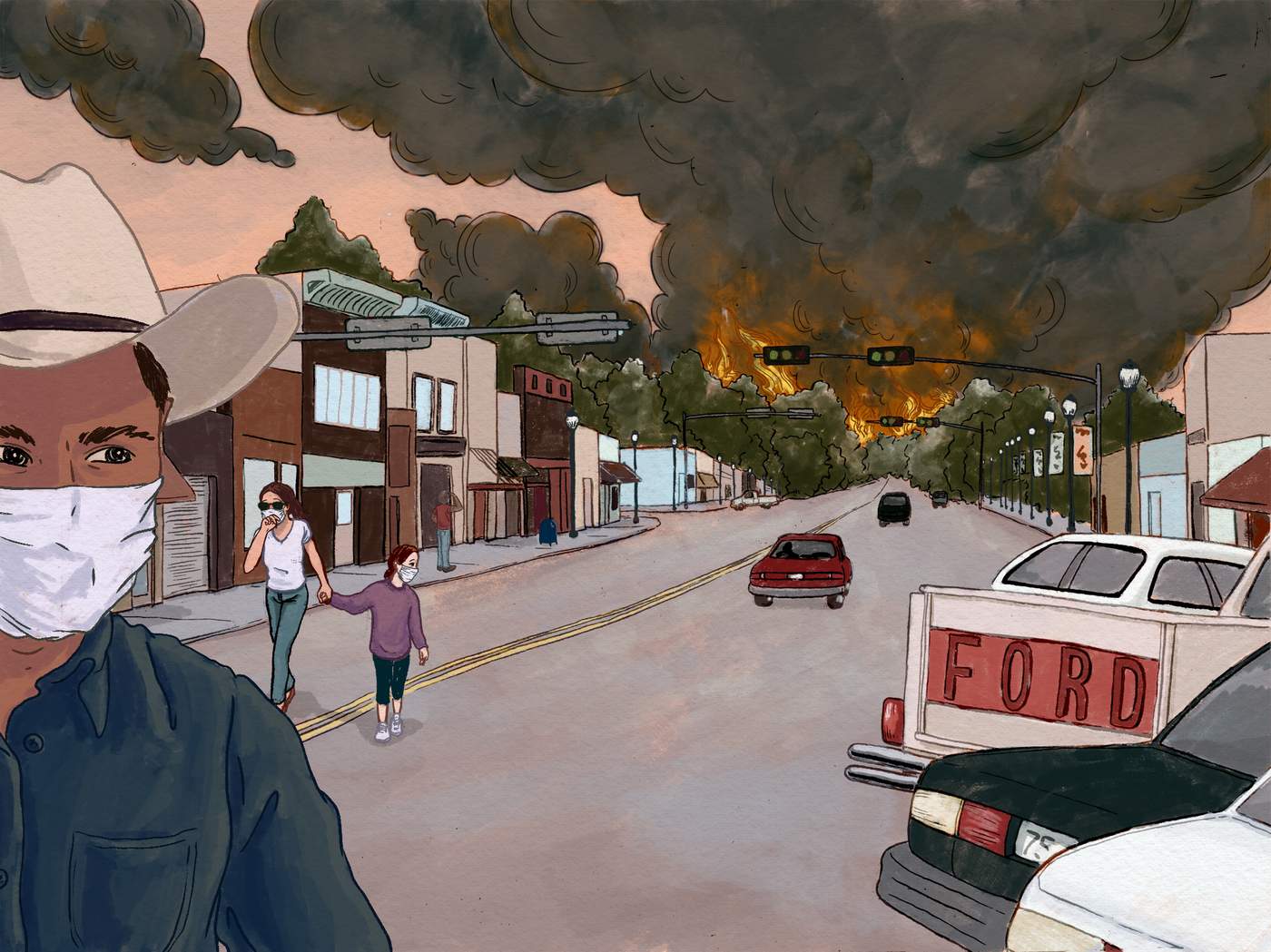
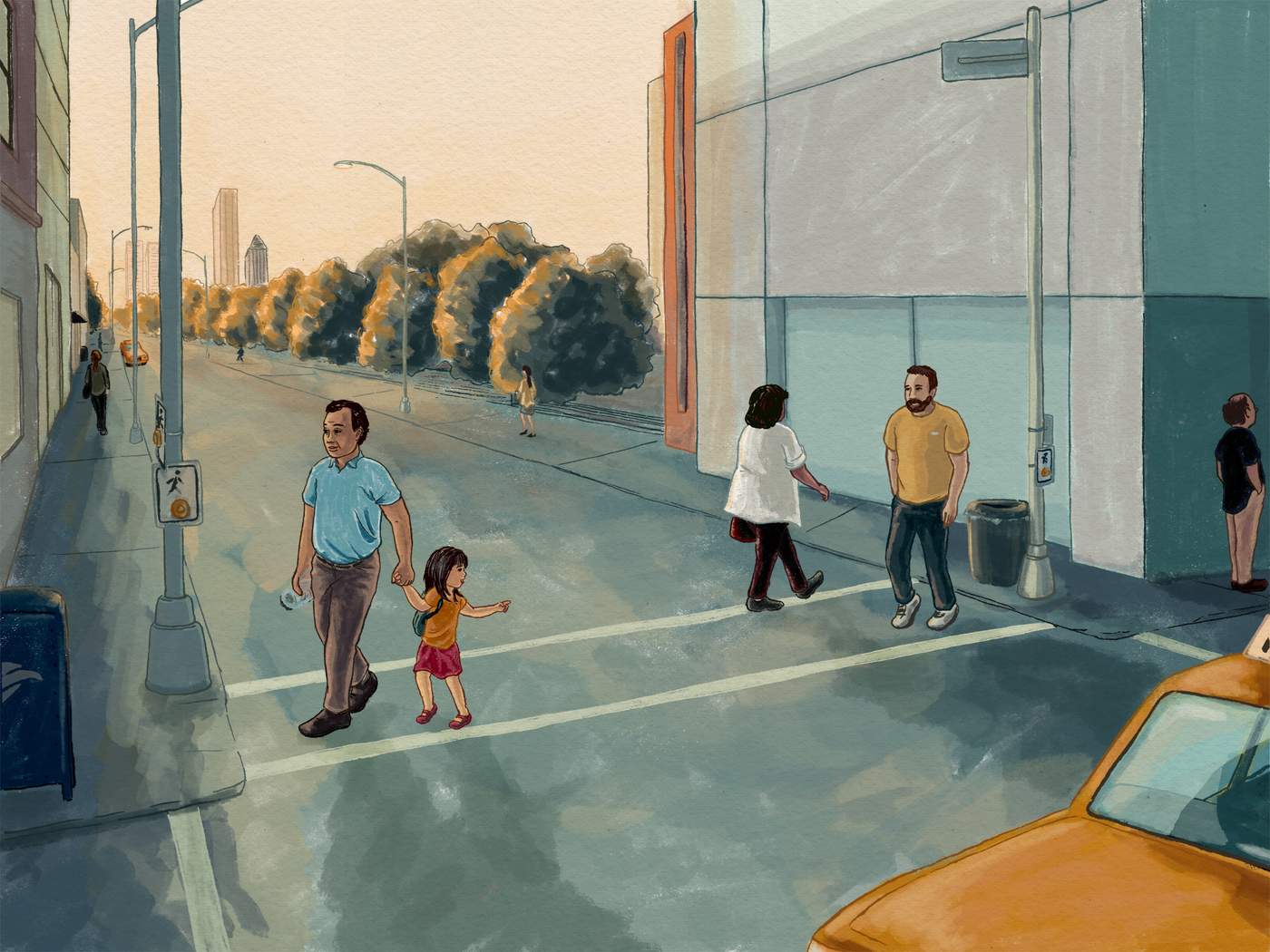
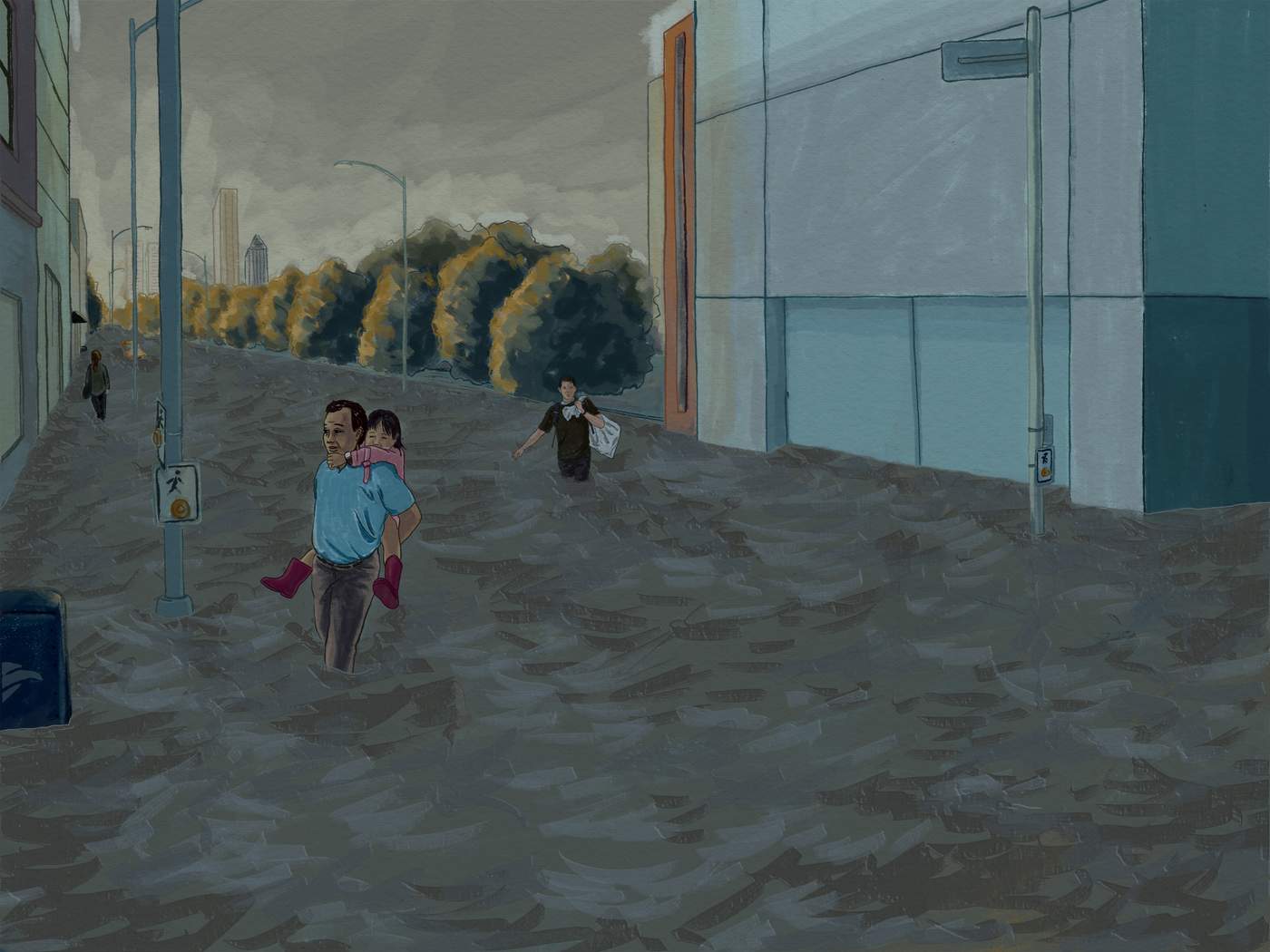

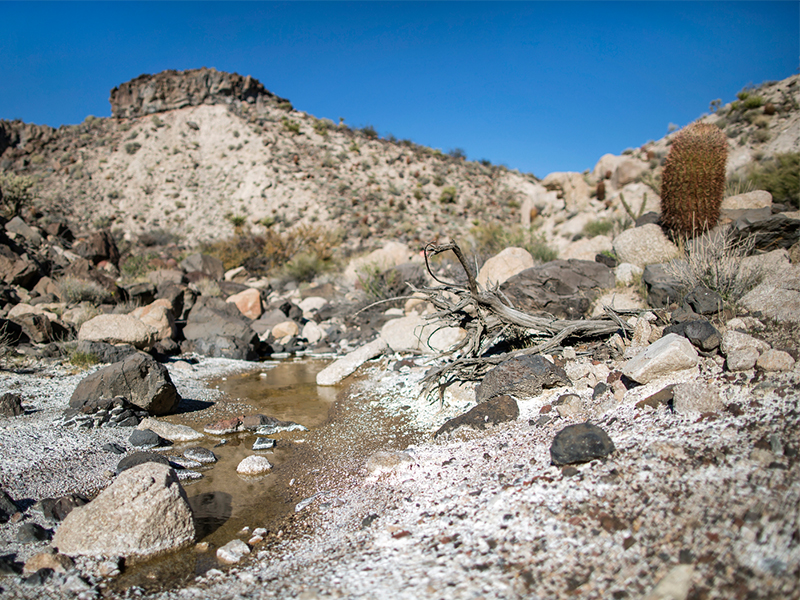
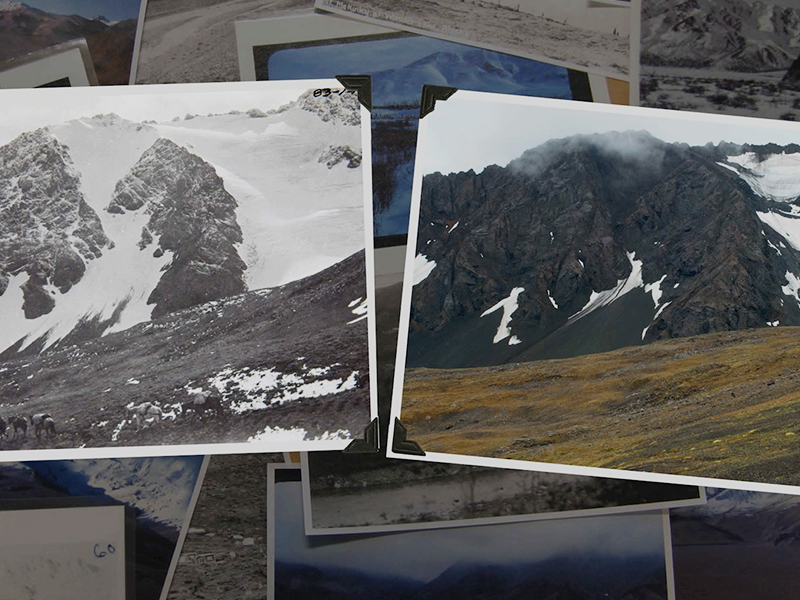
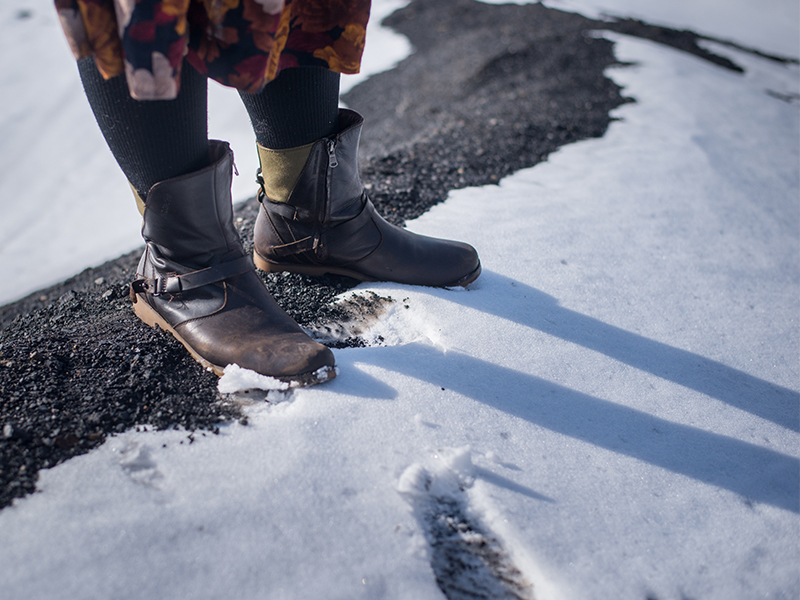
 to WBEZ
to WBEZ
